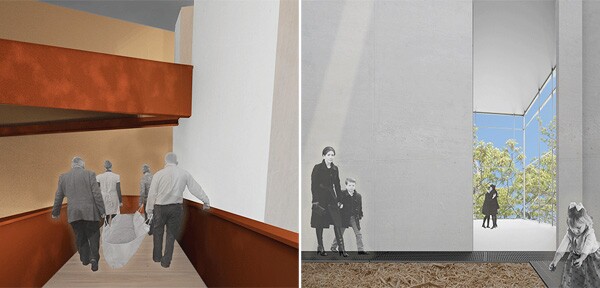Postmortem: Would You Want Your Body Turned Into Compost?

There are a few things we usually consider when we want to make a smaller footprint on society: recycling, housing, transportation, even the number of children we ultimately have.
But what about our footprint after we're long gone?
Every year, more than 90,000 tons of steel and 30 million board-feet of hardwood are used to construct coffins in the U.S. Nearly 1 million acres of land are taken up by cemeteries, with that number continuing to grow as our populations grow. More than 750,000 gallons of formaldehyde are used in embalming, so bodies take longer to decompose — not to mention all the toxic fluid that ends up leaching into the ground. Cremation requires a substantial burning of fossil fuels.
If we're striving to be as sustainable as possible, shouldn't we prepare to lessen our impact on the earth for our children and their children?
That's the premise behind the Urban Death Project by designer Katrina Spade, who has been working on a greener alternative to postmortem rituals for the last three years.
Spade envisions a "renewal system" that turns bodies into rich, soil-building compost for the deceased's loved ones' gardens, or perhaps for neighboring farms and community plots. Quite literally, we become a part of the city we once lived in.
Her plan calls for a three-story building that serves as both a ritual site and compost facility, where family and friends can gather and reflect on the natural process of death, as well as assist with covering the body with a high-carbon mixture of wood chips and sawdust to jumpstart the composting process. Within a few months, the body is fully composted and can be returned to the earth.

While the idea of composting a dead body may not be for everyone, it's an interesting alternative for those who are not tied to religious traditions, and for urban centers where burials are expensive and environmentally unsound.
There's also something a little more romantic about sitting under a verdant tree that your loved one helped fertilize and grow, than standing next to a cold marble slab butted up against rows of other slabs.
Spade recently won an $80,000 two-year fellowship from Echoing Green this year, which will allow her to fully design and test a prototype in Seattle. If the project proves to be sound and sustainable, she hopes to expand the Urban Death Project into permanent facilities in other cities in the U.S.